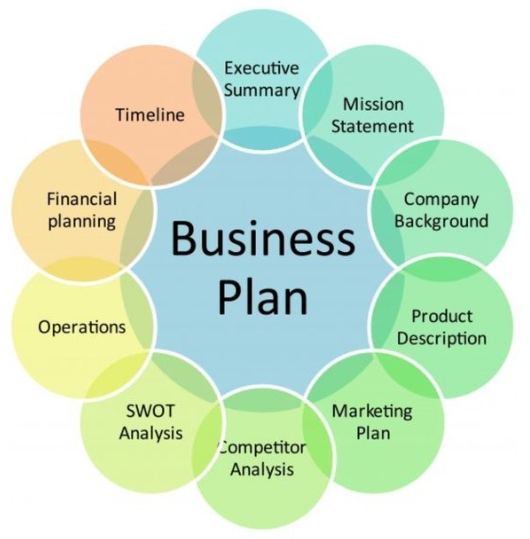What must an Entrepreneur do after creating a business plan?

Creating a business plan is a significant milestone for any entrepreneur. It outlines your business objectives, strategies, and the roadmap to success. However, the journey doesn’t end with a well-crafted plan; it’s just the beginning. Here’s a comprehensive guide on what entrepreneurs must do after creating a business plan to bring their vision to life.
Business Plan Definition
A business plan is a formal document that outlines a company’s goals, the strategy to achieve those goals, and the timeframe in which these goals will be reached. It typically includes detailed plans and budgets showing how the objectives will be realized. A business plan serves as a roadmap for the business and is essential for securing funding from investors or lenders.
Business Plan Outline
- Executive Summary
- Business concept
- Company description
- Market analysis
- Financial highlights
- Business Description
- Business model
- Vision and mission statements
- Business goals and objectives
- Market Analysis
- Industry background
- Target market
- Competitive analysis
- Market trends
- Organization and Management
- Organizational structure
- Ownership information
- Management team profiles
- Products or Services
- Product/service description
- Unique selling proposition
- Lifecycle of the product/service
- Research and development
- Marketing and Sales Strategy
- Marketing plan
- Sales strategy
- Pricing model
- Advertising and promotion
- Funding Request
- Funding requirements
- Potential sources of funding
- Future funding requirements
- Financial Projections
- Income statements
- Cash flow statements
- Balance sheets
- Break-even analysis
- Appendix
- Resumes of key team members
- Permits and legal documents
- Additional data or market research
Business Plan Example
Executive Summary: ABC Tech Solutions aims to revolutionize small business operations through an innovative suite of software tools. By leveraging cutting-edge technology, we provide affordable, easy-to-use software that streamlines administrative tasks, enhances productivity, and drives growth.
Business Description: ABC Tech Solutions will operate as a Limited Liability Company (LLC), offering subscription-based software services to small and medium-sized enterprises (SMEs). Our mission is to empower SMEs to achieve their full potential through technology.
Market Analysis: The market for business software solutions is growing rapidly, with a 10% annual increase. Our target market includes SMEs across various industries, primarily focusing on those looking to improve operational efficiency. Competitors include established software providers, but our unique selling proposition lies in our affordability and user-friendly interface.
Organization and Management: The company is founded by John Doe, an experienced software engineer with a background in business management. Our team includes seasoned professionals in software development, marketing, and customer support.
Products or Services: Our flagship product, ABC Business Suite, includes tools for invoicing, inventory management, customer relationship management (CRM), and analytics. Our software is designed to be intuitive, ensuring ease of use for business owners with minimal technical expertise.
Marketing and Sales Strategy: We will utilize a multi-channel marketing approach, including digital marketing, partnerships with business associations, and attending industry trade shows. Our sales strategy involves a freemium model, allowing businesses to try the software with basic features before upgrading to a premium subscription.
Funding Request: ABC Tech Solutions seeks $500,000 in seed funding to cover the costs of product development, marketing, and initial operations. We plan to secure this funding through angel investors and venture capitalists.
Financial Projections: In the first year, we project revenues of $200,000, with a steady increase as we expand our customer base. By the end of year three, we anticipate achieving $1 million in revenue, with a 20% profit margin.
Appendix: Includes resumes of the founding team, market research data, and legal documentation for the company.
Next Steps After Creating a Business Plan
Given the completion of a business plan, the subsequent steps are crucial for the actualization of your business objectives:
- Validate Your Business Idea
- Conduct market research, seek feedback, and analyze competitors to refine your business model.
- Secure Funding
- Determine your capital needs and explore various funding options such as bootstrapping, loans, investors, and grants.
- Register Your Business
- Choose a business structure, register your business name, and obtain the necessary licenses and permits.
- Build a Strong Team
- Identify key roles and hire individuals who bring complementary skills and share your vision. Foster a positive work culture.
- Develop a Marketing Strategy
- Define your target audience, craft your brand message, and utilize digital marketing tactics to reach a wider audience.
- Establish Operations and Processes
- Set up infrastructure, develop Standard Operating Procedures (SOPs), and establish supply chain relationships.
- Focus on Customer Experience
- Implement strategies to provide exceptional customer service and build strong relationships with clients. Gather and act on feedback.
- Monitor Financial Health
- Implement sound accounting practices, use financial management tools, and regularly review financial statements.
- Adapt and Iterate
- Continuously monitor market trends, customer preferences, and industry developments. Be prepared to pivot your strategy.
- Network and Seek Mentorship
- Attend industry events, join professional associations, and connect with fellow entrepreneurs. Seek mentorship from experienced business leaders.
Conclusion
Creating a business plan is a significant achievement, but the real work begins with its execution. By following these steps—validating your idea, securing funding, building a strong team, developing a marketing strategy, and focusing on customer experience—you set a solid foundation for your business. Stay adaptable, monitor your progress, and continuously seek growth opportunities. With dedication and perseverance, you can turn your business plan into a thriving enterprise.




Leave a Comment